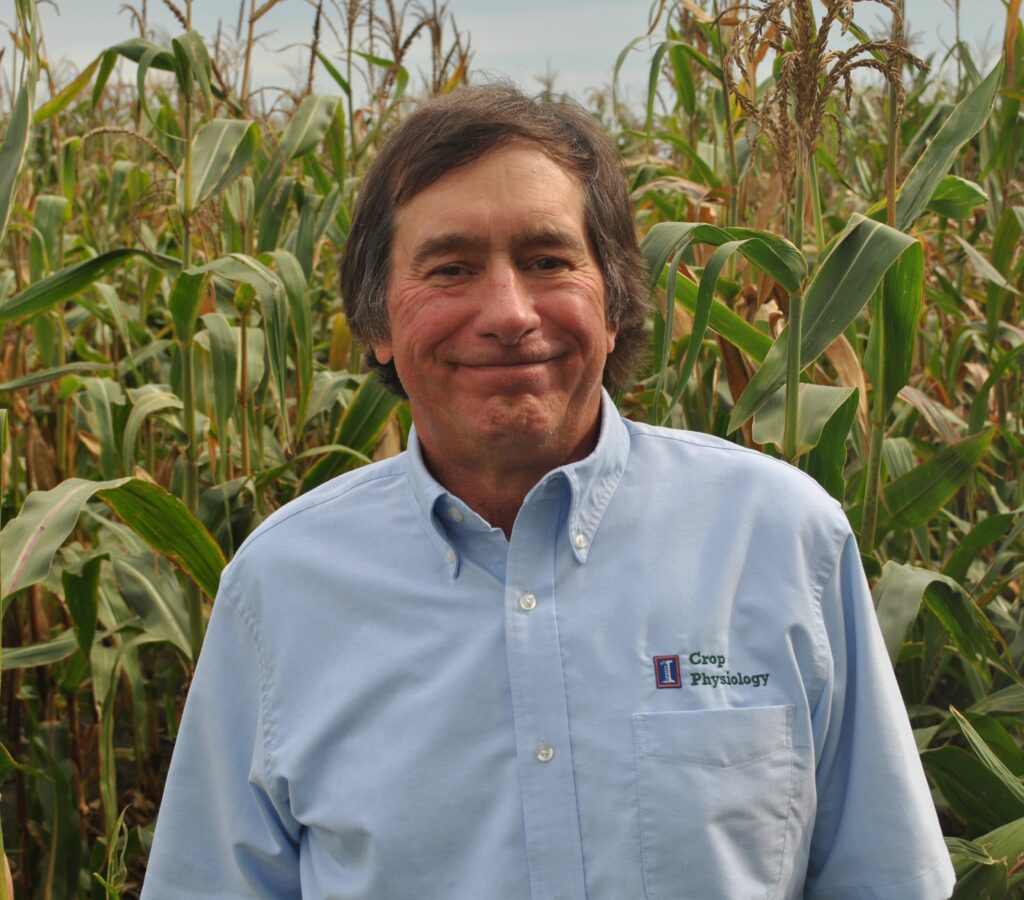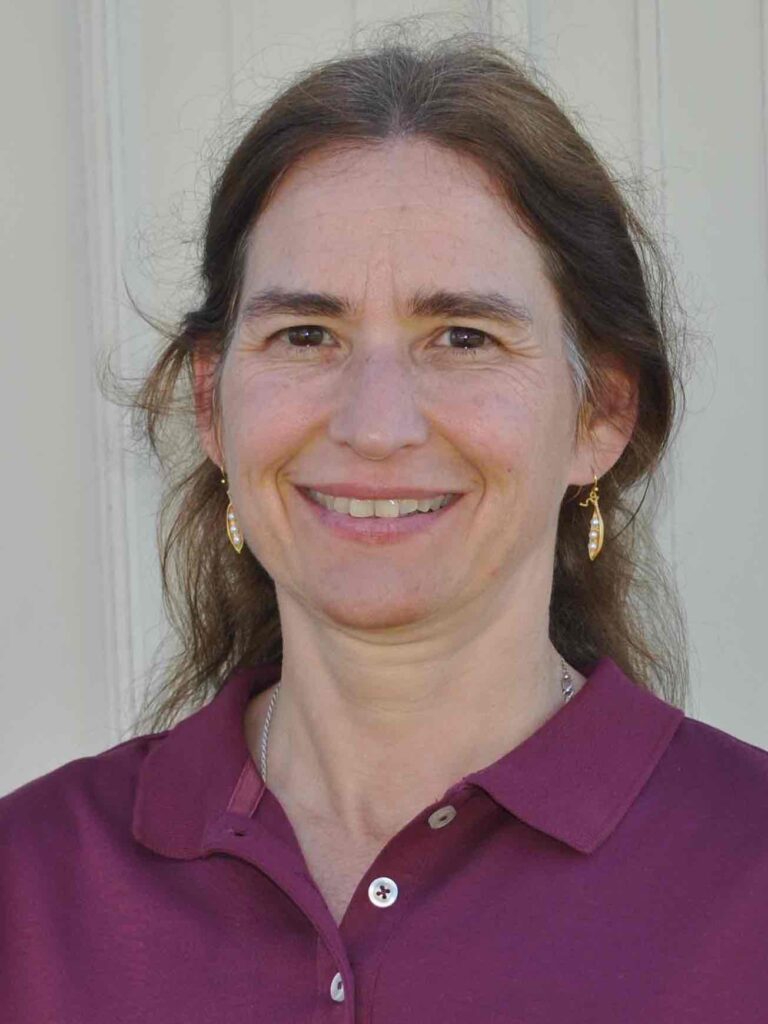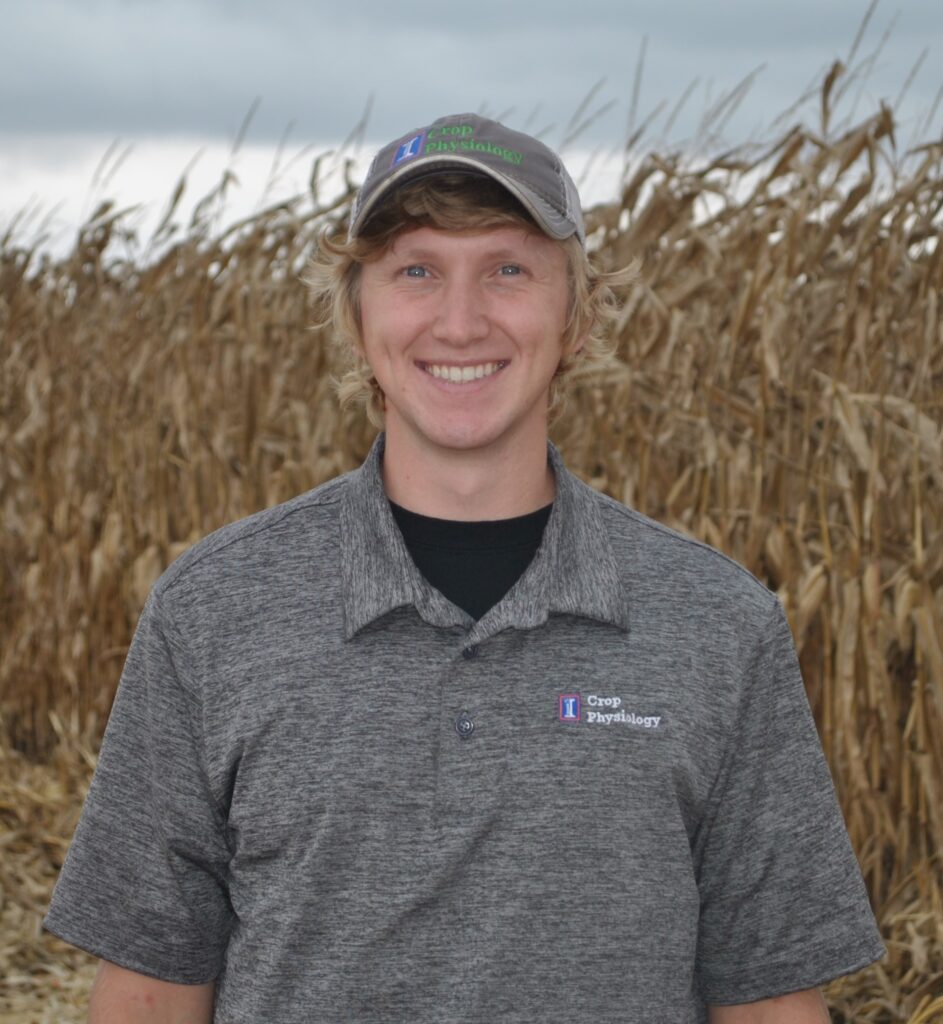
University of Illinois Department of Crop Sciences
Faculty, Staff, & Students

Frederick E. Below, Professor and Principal Investigator
Dr. Below is a Professor of Crop Physiology in the Department of Crop Sciences. His research is focused on understanding factors limiting crop productivity, particularly corn and soybean. He has taught introductory crop courses to undergraduates, as well as advanced courses to graduate students, and given numerous presentations at international and national conferences. He developed the “Seven Wonders of the Corn Yield World” and the “Six Secrets of Soybean Success” as tools to teach farmers and agricultural professionals the value of their individual crop management decisions.
Email: fbelow@illinois.edu

Juliann Seebauer, Principal Research Specialist
My research focus is on the physiological basis underlying the growth, development, and final quality of grain. I use multiple approaches to accomplish this goal, including in-vitro kernel and panicle culture, stem infusion, hydroponics, and field studies, while integrating regional weather patterns, agronomic management, and quantitative chemical analyses.
Email: jzzz@illinois.edu LinkedIn: Juliann Seebauer Twitter: @JuliSee1

Jared Fender, Senior Research Specialist and M.S. Student
As a senior research specialist for the laboratory, my main focus revolves around the equipment utilized in the CPL research program. As fertilizer application methods and placements are constantly being redesigned, our research-scale equipment needs to adapt to keep up with the shift to “industry standards”. Alongside the equipment, I am focusing on utilizing fertilizer catalysts such as Bacillus spp. to increase inorganic phosphorus availability throughout the growing season to improve corn yield and NUE, with an interest in a 4R approach to fertilizer sources, timings, and placement methods.
Email: fender2@illinois.edu

Connor Sible, Postdoc
I am interested in high yield corn and soybean production systems with a range of different approaches. Prior to starting a postdoc, my previous research focused on categorizing biological products and in understanding where, how, and why they work to improve fertilizer use efficiency and increase crop yields. My current research still touches these topics, but I have added a focus on crop residue management and genetic by management interactions.
Email: sible2@illinois.edu LinkedIn: Connor Sible Twitter: @ConnorSible

Samuel Leskanich, Ph.D. Student
My research interests are focused on the integration of new agronomic products like innovative fungicides and fertilizers into different management systems in corn and soybean production. These management systems include standard approaches with lower inputs and progressive systems with additional inputs in the attempt to maximize grain yields. As not all products are “one size fits all,” it is important to know in which system a new product may work best.
Email: sjl15@illinois.edu LinkedIn: Samuel Leskanich

Dalton Knerrer, M.S. Student
Residue is often referred to as “trash,” but if we can tap into the valuable nutrient reserve it can certainly become “treasure!” I focus my research on residue management in continuous corn and double crop soybean systems, with the integration of novel agronomic practices such as the application of microorganisms with or without surfactants that can enhance residue decomposition to benefit cash crop yields. In addition to the use of residue degrading biologicals, I am also evaluating the efficacy of N-fixing inoculants for corn to improve N use efficiency.
Email: knerrer2@illinois.edu

Miranda Ochs, M.S. Student
My research is centered around the interactions of genetic variations and management practices as they relate to corn and soybean production. Specifically, I am concentrating on the impact of planting date to optimize the value of fertility or foliar protection for improved soybean yields and the diverse performance of corn hybrids under various planting densities, fertility applications, and foliar protection. The goal of this research is to maximize yields and provide valuable insights to benefit farmers in their agronomy decisions.
Email: mcochs2@illinois.edu LinkedIn: Miranda Ochs

Gabriela Frigo Fernandes, M.S. Student
My main interest is studying crop nutrition and learning how different sources, rates, placements, and timings of fertilizer applications impact agricultural production. As an agronomist and chemist by training, my research blends my knowledge to better understand how fertilization strategies affect crop growth, development, and final grain yields. Considering that fertilizers are one of the most expensive inputs on the farm, I have particular interest in studying how to maximize fertilizer use efficiency in a way that reduces costs per acre while increasing profitability to farmers.
Email: gf17@illinois.edu LinkedIn: Gabriela Frigo Fernandes
Visiting Scholars

Julia Maria Anzolin Isaac, Brazil
Hi, I am Julia Isaac, and I am currently a visiting scholar at the Crop Physiology Laboratory at the University of Illinois. My undergraduate background is at ESALQ/USP, SP-Brazil, where I am studying to be an agronomist. I am grateful for the opportunity as a member of the lab and have learned a lot of new knowledge for high yield productivity of corn and soybean systems in the US. After completing my bachelor’s degree, my interest for the future is to put together all of my experiences and work in the commercial side of the agronomy industry.
Email: jai13@illinois.edu LinkedIn: Julia Isaac

Amanda Pelicer Beckers, Brazil
As a research scholar at the Crop Physiology Lab, I am acquiring knowledge in high yield corn and soybean systems. One way of achieving high yields is through the use of biologicals, which is my main area of interest in crop production. In the lab, working with the MS and PhD students has been a great experience and opportunity. I look forward to using my experience in the lab to complete my undergraduate degree and pursue a career in the industry.
Email: apb17@illinois.edu LinkedIn: Amanda Pelicer Beckers

Pieter Swart Schoenmaker, Brazil
I am an undergraduate student of agronomy from UFLA, Brazil. I am interested in management practices related to crop rotation, use of biologicals, and soil fertility in high yield corn and soybean production. The knowledge and experience gained as a research scholar at the Crop Physiology Lab has been a great benefit to my experience and I look forward to bringing these new skills into my future career.
Email: pieterss@illinois.edu